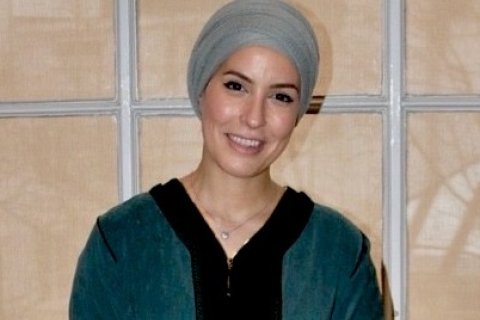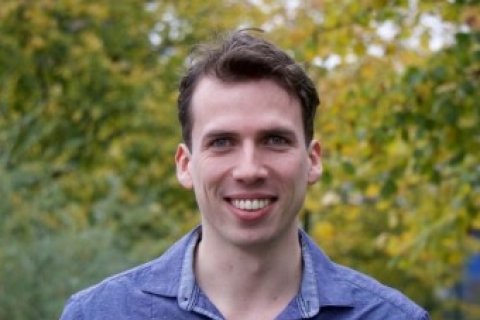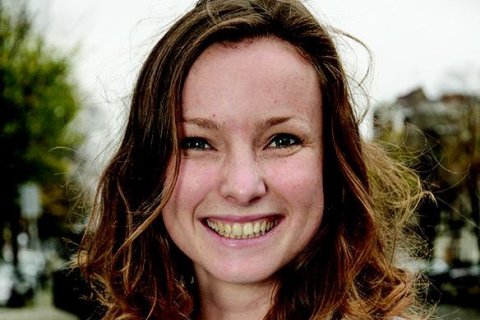Testimonials
From September 2023: revised Master’s programme
The content of the Master’s programme in Social Challenges, Policies and Interventions (previously named ‘Social Policy and Public Health’) has been revised. The students below were enrolled in Social Policy and Public Health.
Chahida Bouhamou

"I graduated from a university of applied sciences (hbo) and I worked for several years with people who lived in poverty due to debts. I really wanted to understand the mechanisms underlying these problems, so I decided to quit my job and apply for the pre-Master’s programme.
One thing I liked about this programme is that all the lecturers during the pre-Master’s and Master’s stimulated students to ask critical questions. They weren’t only there to send out information, but also to receive information, thoughts and opinions from students. This contributed to a very inclusive learning environment in which there is room for many different opinions.
The challenging part of the programme is that, especially in the second period, the workload is very high. Students are expected to complete their courses, start orientating on an internship and write a research proposal. Although it was stressful at the time, it really ensured that I could make the best use of the twenty weeks I had to conduct the research and write my thesis.
I worked as a student-assistant at the UU during my pre-Master’s and Master’s. Once I graduated, the student-assistant job was turned into a research position. I am part of a team that focuses on the topic of homelessness and mental health issues. What I really love about my job is that it allows me to create more awareness among policymakers about these important societal problems. So if you are interested in social issues and want to make a positive change, this is the right Master’s for you!"
Rubin ten Broeke

"I chose this Master's programme mainly because I was interested in social health issues and wanted to learn more about existing interventions and policies. But I also thought this Master’s would be a good fit for me because my background is in Interdisciplinary Social Sciences (also at UU), and I believe it can be very helpful to look at social health issues from an interdisciplinary perspective.
One part of this Master’s which taught me a lot was the case study I did. With three other students, I designed an intervention to help solve transport inequity in Overvecht. As part of our intervention, we held a presentation at the Province of Utrecht with an active game/quiz element to create more knowledge and awareness amongst policymakers.
I also did a practical internship at Labyrinth Onderzoek & Advies in Kanaleneiland. I helped to organise interviews, collect and analyse data and write research reports – and pet our office dog, one of the best parts of the internship. I loved the atmosphere in the Labyrinth-team, and my 10 weeks taught me a lot about doing research in practice and about how to fit my scientific knowledge into more practical research reports and advice. My initial plan was to work at a small municipality, but the internship made me enthusiastic to work as a researcher/advisor. After handing in my thesis I immediately started my job as project-employee at Labyrinth!
I would definitely recommend this programme to prospective students: it helped me gain insight into social issues and the theories and interventions that are useful for these issues, and the programme also gave me a real sense of the working field. In other words: this Master's did not only extend my knowledge, but also gave me the experience and tools for starting the after-student life!"
Iris Haartsen

"During my Bachelor’s in Interdisciplinary Social Sciences, I was very satisfied with the programme content and with the level of education offered at Utrecht University. There was therefore no doubt in my mind that a Master’s in Utrecht would be a good choice for me. I decided on this Master's programme because of the interdisciplinary approach to social issues. I was mainly interested in the power of social policy and its influence on the welfare state and on society in general. More specifically, I was driven by social themes around poverty, discrimination and care. What I really appreciated about the Master’s programme was its personal approach, and the amount of attention paid to students: all the lecturers are involved with their students and know everyone by name.
I particularly enjoyed the lectures in which real-life issues and current subjects were approached, such as Thomas Piketty’s book about modern capitalism, or ideas around implementing the basic income system. The other thing that I really appreciated was the fact that we were encouraged (even expected) to write our thesis for an external company. I wrote my Master’s thesis at the residential (elderly) care organization WoonzorgCentra Haaglanden (WZH). As I was writing my thesis in the form of a research internship, I did not have to perform other tasks within the facility. My thesis was about the sustainable employability and work performance of older nursing carers. With the help of qualitative interviews, I studied how nursing carers can remain employable and of value to the elderly care sector.
My schedule was pretty intense during the Master’s. I had to study a lot, work around twelve hours a week, played Hockey and was active in my sorority. I had classes four days a week, for which there was a lot of reading, and I often studied together with other students. My advice to new students would be to work less hours (if possible), and to make sure you reserve a bit of free time between all of your activities.
I am working at a (strategy) consultancy firm now, where I am currently finishing up a traineeship. In the traineeship I worked for different departments within the company. I worked on assignments for a media firm, a serious gaming company and a food department. In other words, I was involved in a wide variety of projects. Although I really liked this diversity, I have decided to focus my search for a new job on positions that are more relevant to my studies, for example at municipalities, healthcare organisations or non-profit organisations."

